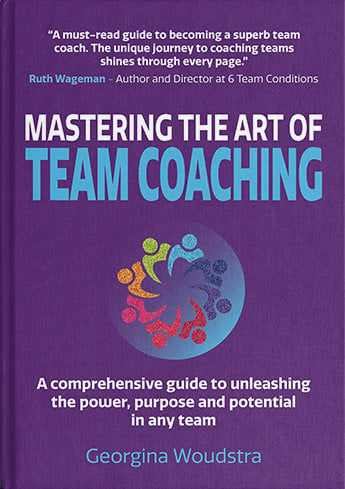Individual coaching is often described as a journey. It has a start, a middle and an end that emerge through regular sessions and the passing of time. It’s a compelling image.
Team coaching is, of course, no different.
It’s not uncommon for client expectations and the coach’s own performance anxiety to lead practitioners into rocky terrain when a ‘team coaching day’ appears on the horizon. Far from starting a useful, impactful journey with the team, the coach who agrees to this simply ends up colluding in the fantasy that, to stretch a metaphor, Rome can be reached in a day.
Many team coaching models and systems appear to give the illusion that they will get a team from A to B with all the ease of a Sat Nav. In reality, team coaching is a messier experience and one that rarely has a detailed travel plan with clear timings and waypoints on route to the destination. However, when considering a team coaching journey is it essential to consider the starting point, which might not always be at the beginning of a team’s voyage as the team may already have set sail. It can also be useful to have some waypoints to consider. Here are 10 I find useful when preparing to coach a team…
1. Team Design
A poorly designed team is unlikely to reap the benefits of team coaching. Before you set out on your journey it’s important to ensure the team are set-up to succeed.
2. Initial Contracting
Before you start you’ll normally talk with the team leader. This initial contracting should help you: a) understand the context the team is operating in, b) clarify your role and approach (e.g. not to facilitate, advise, provide admin support), c) understand the leaders style and how they see their role, d) agree how you will work together during sessions and e) initial discussion on high level objectives.
3. Team Engagement
Make sure the team want to go on the journey with you. Establish trust and build the relationships as soon as you set off, as well as engaging the team in your specific approach and what they can expect from coaching.
4. Discovery
Use diagnostic interviews or team assessments to ensure all team members understand what stage of development the team is at, as a whole.
5. The First Session
This is usually more structured than future sessions which could go in unexpected directions. Help the team get to know each other better and reflect on how they are functioning as a team. One clear output may be some team development goals.
6. Future Sessions
Agree an appropriate frequency for sessions, and how long they should be. Give the team time to process what is emerging from the sessions and to focus on their development goals.
7. Team Observation
As a coach it can be useful to be present during ‘normal’ team meetings to offer observations on the day-to-day function of all members.
8. Coaching the Leader
Research has shown that the team leader accounts for more than 50% of team effectiveness. Turning a leader from good to great can be invaluable overall. This is also a point to be aware that as a coach you don’t take on aspects of team leadership that should lie with the leader e.g. driving performance.
9. Individual Coaching
There are two schools of thought here. Some coaches believe in providing individual coaching to team members, others believe team coaching should be just that: coaching the whole team. Whatever you decide making a link between the role of individuals and team effectiveness is crucial. I find it useful to contract for individual sessions on the principle that enhanced individual contributions will ensure team development overall. It’s also worth noting that any individual coaching in a team environment should come with clearly communicated confidentiality boundaries.
10. Review and Ending
It’s useful to review team progress and learning at regular intervals and re-contract often to ensure that you, as a coach, are adding the most value. At the end of the programme a special review designed to create sustainable change provides lasting value as well as a chance to celebrate the journey so far.
Whatever journey you take, it’s important to remember that these waypoints are just some suggestions. There are many others and not all of these may work for you.
With team coaching programmes lasting anywhere from a few months to a year or more – and every coach bringing their own creativity and style to proceedings – the route you take will depend on many factors. The important thing is to ensure the journey is one you’re comfortable taking people on, and one that will deliver success for the team you’ve been brought in to help.
The road to impactful team coaching may be smooth or bumpy, that’s the reality. But by having a good grasp on the map you want to guide you and the compass of your coaching experience close at hand you’ll be able to chart a course to success for any team.



